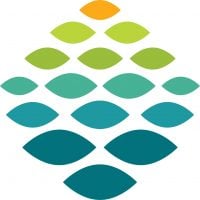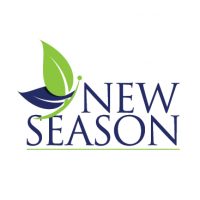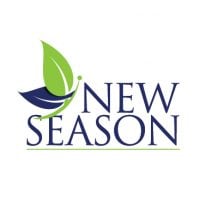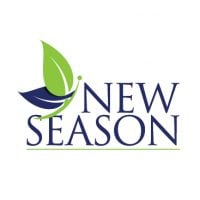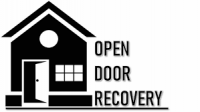Partners for Change - East Trout Lane
Drug Rehab Center in Belfast, Maine
Partners for Change - East Trout Lane in Belfast, Maine provides addiction and substance abuse treatment services through evidence-based practices and various therapeutic services, with a focus on helping clients create a positive future free from addiction while offering family support services, and is fully accredited by the Commission on Accreditation of Rehabilitation Facilities (CARF).
About Partners for Change - East Trout Lane in Maine
Partners for Change - East Trout Lane in Belfast, Maine is a leading provider of addiction and substance abuse treatment services. Located in the beautiful coastal town of Belfast, the facility offers unparalleled care and support to those struggling with addiction. They offer residential treatment services, as well as outpatient services, to provide a comprehensive and effective approach to tackling addiction. With a focus on evidence-based practices, the facility strives to help clients create a positive future for themselves free from addiction.
Partners for Change - East Trout Lane offers a variety of therapeutic services aimed at addressing the underlying causes of addiction. These include individual and group counseling, experiential therapies, art and music therapy, and educational support. Through a combination of these therapies, clients are able to begin to heal from the inside out. In addition, they also provide family support services, helping clients and their family members build a strong support system to maintain sobriety.
Partners for Change - East Trout Lane is fully accredited by the Commission on Accreditation of Rehabilitation Facilities (CARF) and is licensed by the state of Maine. They are also a member of the National Association of Addiction Treatment Providers (NAATP). This facility is one of the few in the area to receive CARF accreditation, showing its commitment to the highest quality of care. The facility also offers a variety of aftercare and alumni services, providing continuing support even after treatment has been completed.
Genders
Ages
Modality
Additional
Conditions and Issues Treated
Opioid addiction treatment should be done in a medically supervised drug rehab. While taking opioids, users will typically use other substances to enhance the effects of opioids or to reduce the adverse effects of opioid use. Opioid addiction treatment will include detoxification and drug rehab counseling to help both the user and their loved ones learn how to live a successful sober lifestyle.
Treatments such as methadone, buprenorphine, and naltrexone are three medications that can help treat opioid addiction. These drugs work on the brain’s pleasure center and reduce cravings and the effects of illicit opioids such as heroin. These drugs can be either given orally or by injection. Individual drug rehab counseling sessions can be helpful to discuss any questions or concerns with the drug treatment program. This counseling will also help the user set goals for when they finish drug rehab.
Opioid addiction recovery is a long process. Many of the changes to the brain caused by opioid use cannot be undone, but with time and the proper treatment, a person can return to normal function. After detox, treatment will include drug rehab counseling and entering a halfway house or sober living community. Aftercare is critical to long-term recovery, as it helps the user avoid relapsing and entering back into drug rehab.
Levels of Care Offered
This center offers a variety of custom treatment tailored to individual recovery. Currently available are Drug Rehab, Dual-Diagnosis, Intervention, Outpatient, with additional therapies available as listed below.
“Outpatient treatment is ideal for those who have a lower intensity addiction. It’s also suitable for those with a supportive environment and those on a tight budget.
Outpatient treatment can be considered the lowest intensity level of addiction treatment. It is ideal for early phase addiction or lower intensity addictions. It may involve weekly sessions instead of daily. Peer group support, 12-step programs, and individual counseling may still be used and anti-addiction medication.
Drug rehab intervention aims to make sure patients understand the risks of their addiction and possible outcomes. They must learn how their addiction affects those around them and allow a therapy session to help move past the physical symptoms. They often include psychotherapy or behavioral therapy, group therapy, family counseling, and peer support.
Therapies & Programs
No single treatment works for all addicts; therefore, the goal of treatment and therapy should be to find what works best for each individual. Some people requiring addiction treatment may only need a few weeks of inpatient care. Others will require long-term residential care. Tolerance and withdrawal levels vary from person to person and thus affect the intensity of the treatment needed.
If an individualized approach to treatment and therapy is not offered, addicts may fail to reap benefits from their efforts. Professionals must customize plans according to their patient’s needs, limitations, and strengths. The goal of all forms of addiction treatment should be for addicts to find healthy ways to cope with their addiction and its underlying causes.
Couples therapy for drug addiction is a unique form of therapy that allows family members to work through the emotional issues of their loved one’s addiction together. Family members can support each other while learning how to cope with the addiction and encourage healthy changes.
Accordingly, couples therapy for drug addiction is designed for an addict and their significant other or spouse. The two will work with a therapist to learn how the addiction affects themselves and the relationship and how to break the negative patterns of behavior that may have developed.
Drug addiction can destroy a person’s life, as well as their family and friends. The loss of one’s ability to choose how to live and behave often leads the addict into depression, anger, guilt, and many emotional problems.
The therapies usually include siblings, children, and parents who are involved in their daily lives. These sessions are vital because they address past issues that may have hampered an addict’s or alcoholic’s recovery and provide support at a crucial time!
One of the most critical aspects of family therapy is helping addicts’ loved ones see their situation in a new light. It’s also one of the most challenging things a family can do when a loved one struggles with addiction or alcoholism.
Group therapy is held in a safe, controlled setting where patients can feel comfortable sharing their struggles and gaining perspective through shared conversations. It takes place in a group rather than one on one to prevent feelings of isolation or being unique in their situation while creating an environment for addicts at Partners for Change - East Trout Lane to develop fellowship, accountability, and support. Group therapy is an important tool in recovery that prevents cravings that prompt a return to active addiction.
This type of therapy involves the use of a variety of therapeutic techniques to help addicts recover from past traumas that might have triggered their substance abuse. During these sessions, therapists will work with the addict to address painful memories and learn how to cope effectively with stressors as they arise.
During these types of sessions, therapists will typically focus on three main goals:
- Identifying and expressing painful emotions associated with past traumas.
- Reducing the effects of stress on an addict’s life by developing more effective coping mechanisms.
- Developing healthy ways of thinking about stressful situations that can help addicts avoid substance abuse issues in the future.
This type of therapy is typically used in conjunction with other types of addiction treatment services. By identifying and dealing with the root cause of addiction, most addicts can overcome their cravings and prevent relapse once they leave rehab.
Many different types of addiction treatment services exist to help addicts safely get sober, but it’s important for recovering individuals to find a therapist or support group that will help them address the root cause of their addiction.
Cognitive-behavioral therapy is a talking-based method that helps people struggling with addiction replace destructive behaviors with healthier ones. CBT also helps them identify the underlying thoughts and beliefs that cause these behaviors in the first place and ways to control those thoughts and feelings. It can be administered as a holistic therapy or as part of combination therapy and—as opposed to turning to drugs and alcohol—helps addicts learn how to respond to negative thoughts instead.
Payment Options Accepted
For specific insurance or payment methods please contact us.
Is your insurance accepted?
Ask an expert, call (888) 674-0062
Additional Details
Specifics, location, and helpful extra information.
Belfast, Maine 4915 Phone Number(207) 338-6055 Meta DetailsUpdated November 25, 2023
Staff Verified
Partners for Change - East Trout Lane Patient Reviews
There are no reviews yet. Be the first one to write one.
Belfast, Maine Addiction Information
Prescription opioid abuse is the most common form of substance abuse in Maine. More than 10% of these residents have also admitted to using prescription drugs for non-medical purposes. Between 2013 and 2014, 4 out of every 5 deaths in Maine were caused by illicit drugs. One in five high school students in Maine uses marijuana every single month.
About 9% of the population in Belfast, ME, has a substance abuse problem. About 9.4% of people in Belfast, ME, abuse drugs, while 4.8% of people in Belfast, ME, abuse alcohol. The number of people who have died from drug overdoses has increased significantly. There are plenty of resources available including drug and alcohol rehab centers that can help you get on the right track.
Treatment in Nearby Cities
- Fryeburg, ME (104.5 mi.)
- Randolph, ME (43.4 mi.)
- South Portland, ME (87.2 mi.)
- Wells, ME (114.9 mi.)
- Searsport, ME ( mi.)
Centers near Partners for Change - East Trout Lane
The facility name, logo and brand are the property and registered trademarks of Partners for Change - East Trout Lane, and are being used for identification and informational purposes only. Use of these names, logos and brands shall not imply endorsement. RehabNow.org is not affiliated with or sponsored by Partners for Change - East Trout Lane.



